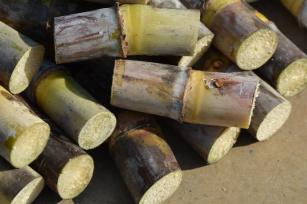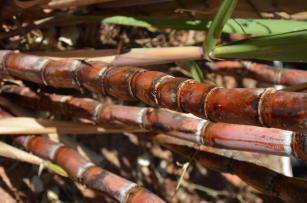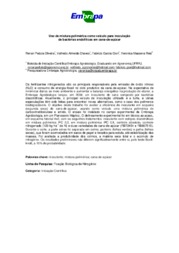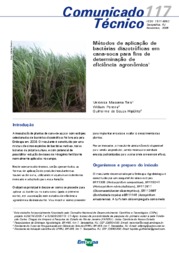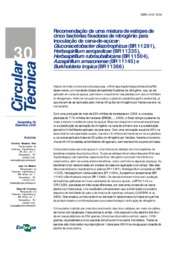Unit
Embrapa Soils
 Busca de Projetos
Busca de Projetos
Inoculant containing nitrogen fixing bacteria for sugarcane applications
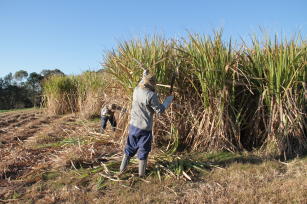
Photo: LANZETTA, Paulo
Sugarcane is one of the pillars of the Brazilian agricultural economy. Productivity gains combined with an industrial activity developed for use in the sugar and ethanol production have led researchers to seek agroindustrial management strategies to reduce costs. This project proposes the application of diazotrophic bacteria as a biological input to fully or partially meet sugarcane's nutritional needs with regard to nitrogen.
For that purpose, it counts on Embrapa Agrobiology's experience in the application of diazotrophs as inoculants for gramineous plants - like sugarcane - and on the proximity with the crop's top producing regions, represented by the collaboration with Universidade Estadual do Norte Fluminense and Universidade Federal Rural do Rio De Janeiro.
The action strategy was based on the result of three experiments in which sugarcane was inoculated with a mixture of five standard strains of diazotrophic bacteria. They evaluated the productivity, saccharose content, and total nitrogen in the sugarcane plant and in the sugarcane ratoon. To check the efficiency of the inoculation process, the contribution from biological nitrogen fixation was quantified. Microbiological analyses using immunological methods and analyses of accumulated biomass and nitrogen content were performed. The end product, fruit of the selection of strains, was assessed with regard to quality, number of cells, shelf life, and number of bacteria in the stalk.
For that purpose, it counts on Embrapa Agrobiology's experience in the application of diazotrophs as inoculants for gramineous plants - like sugarcane - and on the proximity with the crop's top producing regions, represented by the collaboration with Universidade Estadual do Norte Fluminense and Universidade Federal Rural do Rio De Janeiro.
The action strategy was based on the result of three experiments in which sugarcane was inoculated with a mixture of five standard strains of diazotrophic bacteria. They evaluated the productivity, saccharose content, and total nitrogen in the sugarcane plant and in the sugarcane ratoon. To check the efficiency of the inoculation process, the contribution from biological nitrogen fixation was quantified. Microbiological analyses using immunological methods and analyses of accumulated biomass and nitrogen content were performed. The end product, fruit of the selection of strains, was assessed with regard to quality, number of cells, shelf life, and number of bacteria in the stalk.
Ecosystem: Atlantic Forest, Mid-North, Cerrados Region
Status: Completed Start date: Mon Oct 01 00:00:00 GMT-03:00 2007 Conclusion date: Wed Dec 31 00:00:00 GMT-03:00 2008
Head Unit: Embrapa Agrobiology
Project leader: Veronica Massena Reis
Contact: veronica.massena@embrapa.br
Keywords: cana, FBN, inoculação
